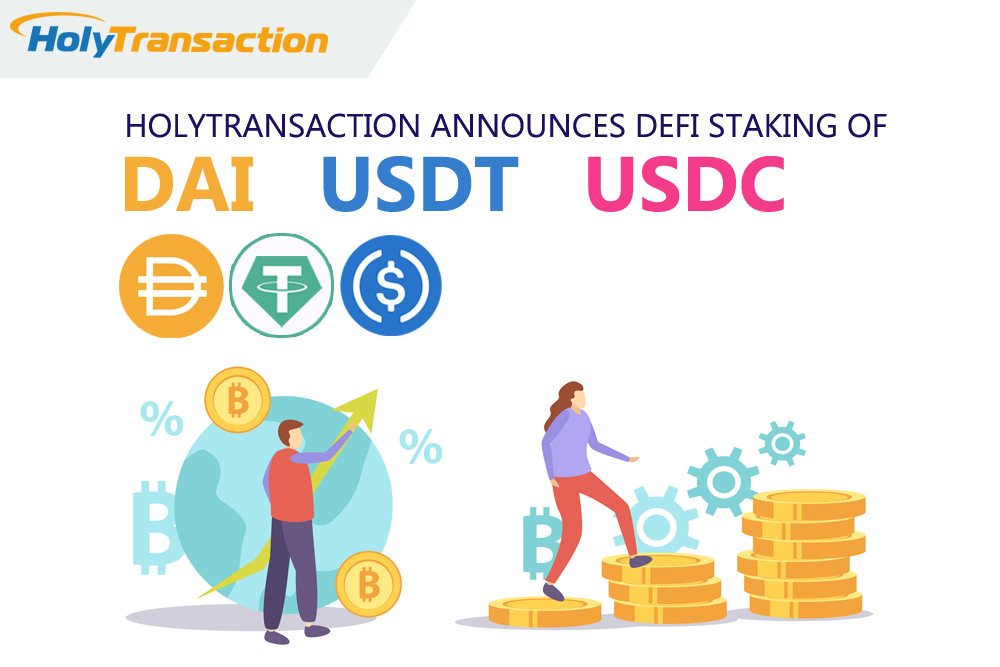
Bitcoin, the world’s first and most widely-used decentralized digital currency, has an important role in building a decentralized financial system. One of the key advantages of Bitcoin is its potential for appreciating in value, thanks to its limited and predetermined supply. This can make it a potentially attractive investment, as it may increase in value over time.
In addition to its potential for growth, Bitcoin offers security and transparency through its distributed ledger, the blockchain. This means that transactions on the network are almost impossible to cheat or make fraudulent, making it a secure option for conducting financial transactions.
Bitcoin’s decentralized nature also means that it is not subject to the same risks as traditional currencies, such as inflation or government seizure. This makes it a useful option for individuals in countries with unstable currencies or high inflation rates, as it allows them to store value and make payments in a more stable and secure way.
The rise of DeFi, or decentralized finance, has also seen the development of a number of projects built on top of the Bitcoin network. These include RSK and tBTC, which allow users to access a wide range of financial services in a decentralized and trustless manner.
The Lightning Network, another layer built on top of the Bitcoin network, also offers users the ability to make fast and cheap transactions. This can make transactions faster and cheaper, and can also enable new use cases such as micropayments and instant payments. One such wallet that integrates with the Lightning Network is HolyTransaction, which offers a wide range of digital assets and other benefits such as an easy-to-use interface and fast and cheap transactions.
A leading project is Blockstream’s Liquid Bitcoin, also known as L-BTC. Liquid Bitcoin is a sidechain-based token that is pegged to the value of Bitcoin, allowing users to transfer value between the two networks quickly and securely. The Liquid Network is a federated sidechain that uses a consortium of trusted nodes to provide increased privacy and security for users.
Another project that leverages the Liquid Network is Fuji Money, a Lightning-enabled non-custodial synthetic asset protocol. Fuji Money allows users to create and trade synthetic assets, such as stablecoins or synthetic commodities, on the Liquid Network in a trustless and decentralized manner. This allows users to access a wider range of financial instruments and services, further expanding the capabilities of the decentralized financial system.
Overall, the role of Bitcoin in building a decentralized financial system is significant, thanks to its potential for appreciation in value, security and transparency, and ability to provide financial inclusion.
Open your free digital wallet here to store your cryptocurrencies in a safe place.


Decentralized finance is quite literally taking the entire blockchain industry by storm.
After a relatively slow buildup over the past few years, the spotlight has well and truly fallen on the cryptocurrency space’s ability to do what traditional finance does — but better.
HolyTransaction, the world’s most trusted cryptocurrency web wallet, is making access to DeFi solutions available to all of its users starting now.
How? HolyTransaction developers have integrated DeFi savings accounts for stablecoins into HolyTransaction web wallets.
If the whole decentralized finance thing is new to you, and you’re having trouble understanding the importance of cryptocurrency savings accounts with stablecoins, then read on!
Blockchain has promised to do a lot over the years.
However, at the end of the day, its first and best use case going back to the invention of Bitcoin is, and has always been, money.
If you’re looking for a one-liner, it’s this:
Cryptocurrencies do it better.
So, why shouldn’t cryptocurrencies one-up the traditional financial industry?
Decentralized finance refers to blockchain-based protocols that enable peer-to-peer financial solutions like loans and, yes, savings accounts. Anything the traditional financial industry offers via institutions like banks, you will soon be doing in a decentralized manner without third parties at all.
The truly clutch tool in the development of the #DeFi industry has been the stablecoin, a workhorse digital asset used to minimize value volatility by pinning a cryptocurrency’s worth to an outside asset.
Some stablecoins, like Tether (USDT), pin their value to government currencies such as the US dollar. To maintain value, $1 is stored in a reserve for every 1 USDT circulating in the open market.
Other stablecoins peg their value to assets like gold, oil, and electricity.
Today, stablecoins are gaining immense popularity as digitally-native alternatives to slow, centralized, and costly to use fiat currencies like the EUR, RUB, USD, and YEN.
When using traditional banking savings account solutions, you’ve probably noticed that APY rates are pretty low.
Even so-called high yield accounts don’t yield much with limits as low as 0.5%.
Decentralized finance is changing that. By removing third parties from banking scenarios, you can often earn as much as 3% APY by keeping your stablecoins in an interest-generating crypto savings account.
The great news is HolyTransaction has integrated such interest-earning features directly into its trusted cryptocurrency web wallets.
With HolyTransaction, there is no need to download, install, or otherwise figure out another piece of software.
Instead, you can use your HolyTransaction cryptocurrency web wallet directly via the web, allowing you to get started generating rewards on your stablecoins right away.
If you’re concerned about a learning curve of some kind — worry not.
Using a DeFi savings account is the same as using a basic cryptocurrency wallet. Just deposit your stablecoins, click on “stake” and you’re good to go — the longer you store them, the more they yield in return.
Want to get started today? Jump over to HolyTransaction to quickly create an account and start saving.
Open your free digital wallet here to store your cryptocurrencies in a safe place.